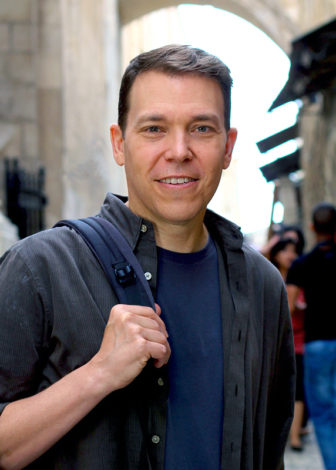This conversation with author Bruce Feiler could not have happened at a more opportune time.
I am in the process of retiring from the full time congregational rabbinate. I am in the process of finishing up a pulpit career that lasted more than forty years.
Over the last few weeks I have found myself repeating the words of my rabbi. Peggy Lee, who sang plaintively: “Is that all there is?”
Is that all there is to being a rabbi? You build relationships; you teach Torah; you embody; you represent; you symbolize – and then, you reach the end of your work years – and then, what?
All of my friends who are retiring, no matter what the career, find themselves asking the same question.
For some, it is: I wake up in the morning; now what do I do?
But for others, it is more like: I wake up in the morning; now who am I? Who am I if not my title and if not my job description?
Is that all there is?
Join me in my conversation with Bruce Feiler, media personality and the author of many books — some on biblical topics (“Walking the Bible: A Journey by Land Through the Five Books of Moses,” “Abraham: A Journey to the Heart of Three Faiths,” “Where God was Born: A Daring Adventure Through the Bible’s Greatest Stories”); on the contemporary family (“The Secrets of Happy Families: Surprising New Ideas to Bring More Togetherness, Less Chaos, and Greater Joy”), and now, on the nature of the meaning of work in today’s world — “The Search: Finding Meaningful Work in a Post-Career World.”

Author Bruce Feiler
This is what we discuss:
- Why two-thirds of Americans say they’re unhappy with their work; why three-quarters say they plan to look for new work over the next year, and why unprecedented numbers of Americans are quitting their jobs.
- How the very idea of “career” might be dead — or at least, the idea of a single career.
- Why professional success no longer requires climbing, but digging.
- Why you should realize that you might be living a “nonlinear life.”
- The meaning of the “workquake,” and how you would recognize it if you felt it.
- Why so many people are willing to trade in their earnings for meaning in life. (Spoiler alert: a study in 2018 that was published in the Harvard business review found that 90% of workers were willing to give up a quarter of their entire life earnings in exchange for work that was meaningful.)
But, throughout the podcast. I found myself smiling, because this conversation and Bruce’s book reflect many things that I wrote in my own book, written almost thirty years ago (!) — “Being God’s Partner: How To Find the Hidden Link Between Spirituality and Your Work.”
Even back then, I was interested in how people bring their spiritual values into the workplace, as a way of creating both meaning and balance in their lives.
I reminded Bruce that we have several ways of speaking about our work.
- There is career – that which we carry.
- There is vocation – the voice that calls to us.
- But the Hebrew language goes one step further – to avodah – which is the word both for “work” and “divine worship.”
It is true that some people worship their work. That is how we wind up with how we wind up with the twin idolatries of careerism and workaholism, which I noted was the only non-stigmatized addiction in American culture. It’s not only not stigmatized; it is often a matter of pride.
But I also believe that there are ways of making our work into worship – of making sure that we incorporate the highest pieces of ourselves – so that we are not, in the words of my Yiddish speaking forebears simply machen a leben, making a living, but creating a life.
Bruce is an old friend, from my Georgia days, and we share some sweet Jerusalem memories as well — about how we journeyed together to a place of meaning, and first started talking about what it would mean to make your own life into a sacred pilgrimage.
Enjoy the podcast!





